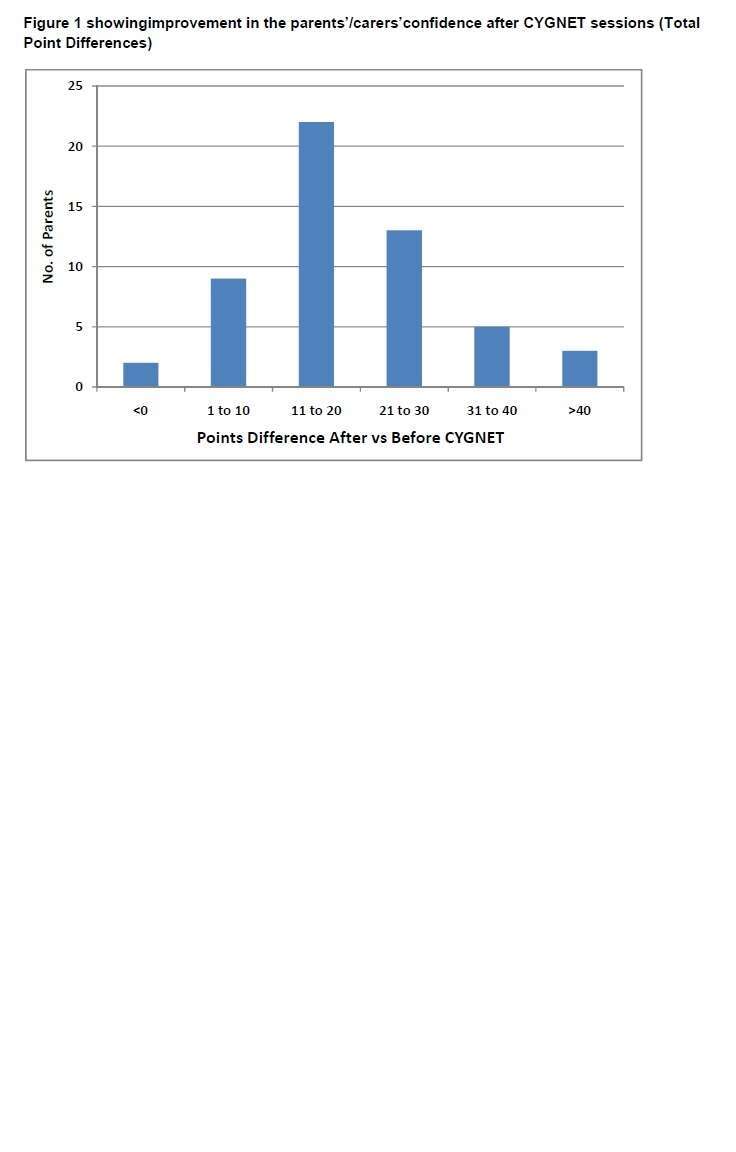
An Audit of Parents’ Knowledge and Confidence in Managing Autistic Children following CYGNET Training Programme at an Integrated Neurodevelopmental Service in South Eastern England
2Community Paediatrics, Glenwood Health Centre, NHS Fife
3Department of Psychology, University of Cambridge
Background: Autism Spectrum Disorders (ASD) are neurodevelopmental social communication disorders, with common problems for families including sleep, anxiety, difficulty with change, sensory processing difficulties and disruptive behaviour.
The CYGNET programme was developed in 2003 by the UK-based charity Barnado as an information group for parents of children diagnosed with ASD. It is the primary post-diagnostic intervention offered in the Autism pathway in the Peterborough Neurodevelopmental Service. Parents are routinely invited to attend the 6 session programme which aims to increase their understanding of ASD.
Aim: To evaluate the effectiveness of the CYGNET course in increasing parents’ confidence in dealing with common situations relating to their child’s ASD.
Method: Data was collected retrospectively using an observational study design, using questionnaires completed by parents attending courses over a 12 month period.
68parents rated their confidence in dealing with 15 different common situations on a 6 point scale (0 = no confidence to 5 = completely confident), at the start and end of the course. Paired t-test was used to compare total and item scores before and after the course. 15questionnaires were excluded because of incomplete data leaving 53 participants.
Results: Self-rated the parents’/carers’ confidence in dealing with the 15 situations was significantly greater following the programme completion in 51 (96%) of the respondents (Figure 1). The mean increase in total score was 18.75 (95% CI 16.11-21.40), t=-14.23, p
Conclusion: This study suggests that the CYGNET programme is effective in increasing the confidence of parents in dealing with difficulties arising when supporting young people with ASD. It would be useful to also evaluate longer-term effects of the CYGNET programme.

Powered by Eventact EMS